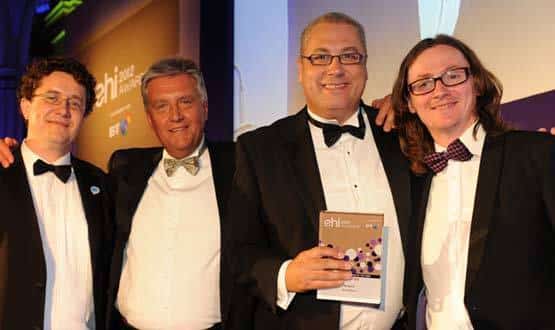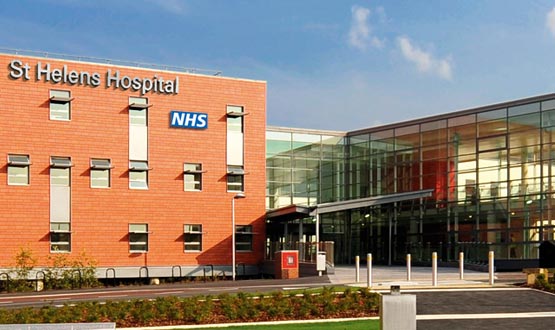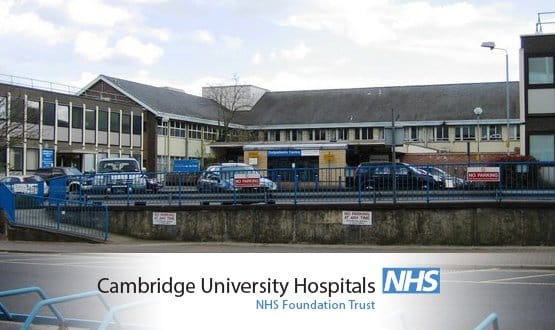St Helens star
- 3 December 2012

In the world of NHS IT, where many organisations can seem intent on ‘reinventing the wheel’ rather than learning from the experience of a trust down the road, Neil Darvill and his health informatics service stand out.
Darvill, who won the Healthcare IT Champion of the Year category of the EHI Awards 2012 in association with BT, is keen to share his experiences and expertise and believes that he and his team have plenty to offer.
The brightly-coloured branding of the St Helens and Knowsley HIS could be seen at a number of health IT conferences this year, and the service has paid host to representatives from 45 NHS trusts who have been to visit over the past 18 months.
Darvill describes the level of general informatics capability in the NHS is “pretty low” and argues that “lots of organisations struggle with that at lots of levels.”
“But there are good examples in the NHS of where that’s been overcome and it’s the responsibility of my service and others like mine to help other organisations. That’s why we’re so open and supportive, we do a lot of meet and greet,” he explains.
Healthcare IT Champion of the Year
As his service has become more visible, so has Darvill himself. This almost certainly helped him to the ‘champion’ win back in October.
“I decided to change the profile of the department and become a bit more visible,” he says. “As part of that process, you do become visible with it.”
Darvill entered the NHS from the private sector in 1992. He was head of IM&T at Blackpool Fylde and Wyre Hospitals NHS Foundation Trust before moving down the coast to Liverpool.
He did a stint as director of IM&T at Royal Liverpool and Broadgreen University Hospital NHS Foundation Trust before taking up the role with St Helens and Knowsley.
He has been director of the health informatics service for more than eight years and says it has a solid reputation in terms of service delivery.
“I think that staying in a job for a long time is much harder than staying for a little bit of time,” he says. “That’s because you go through cycles where you change stuff and implement things and have success.
“But then you have to look after it and you have problems. So being successful through cycles and achieving improvements is quite impressive.”
Working with IMS Maxims
The service has around 150 staff, of which half are technical. It looks after about 13,000 users. “We have matured and evolved from just doing ‘business as usual’ with existing customers, to the point where we can now expand to get other customers in the NHS,” Darvill says.
The HIS has recently teamed up with IMS Maxims to offer a full software and deployment package for the company’s suite of clinical and administrative software products.
This includes patient administration systems, bed management, pathology and radiology systems, and order communications.
The team has already started bidding for work in the NHS and this spring the service signed a five-year contract to manage an IMS Maxims system for a private healthcare customer.
“I don’t think the NHS has ever been in a position to create its own software,” Darvill says. “But external, private sector suppliers don’t necessarily have expertise to do implementation to the level that’s needed.
“It’s a real cultural change management approach. You need to get into and own all the issues, and when you hand that off to the private sector it doesn’t always work well.
“If you combine the two things you have an NHS-oriented service that understands and does that stuff really well in partnership with a commercial company providing good software. That stands a better chance of delivering something than the two sides working in isolation.”
Facing up to the new world
Darvill hopes to work with more commercial partners in the future and has already made tentative arrangements to partner with a big telecoms and data provider.
He believes the NHS and HISs in particular can rise to the challenge of working in a newly competitive health environment and is determined to lead the way.
“I think I have seen the light which is -‘don’t just hide what you do, get out there and do it well and then share it’,” he explains. “Lots of people are interested in that and we have demonstrated a success which I think is re-producible by others.”




